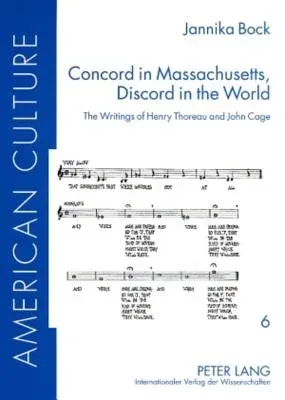Jannika Bock
(Author)Concord in Massachusetts, Discord in the World: The Writings of Henry Thoreau and John CagePaperback, 10 October 2008

Qty
1
Turbo
Ships in 2 - 3 days
In Stock
Free Delivery
Cash on Delivery
15 Days
Free Returns
Secure Checkout

Part of Series
American Culture
Print Length
276 pages
Language
English
Publisher
Peter Lang Copyright AG - Ipsuk
Date Published
10 Oct 2008
ISBN-10
363158413X
ISBN-13
9783631584132
Description
Product Details
Author:
Book Format:
Paperback
Country of Origin:
DE
Date Published:
10 October 2008
Dimensions:
21.01 x
14.81 x
1.52 cm
ISBN-10:
363158413X
ISBN-13:
9783631584132
Language:
English
Location:
Frankfurt a.M.
Pages:
276
Publisher:
Series:
Weight:
344.73 gm